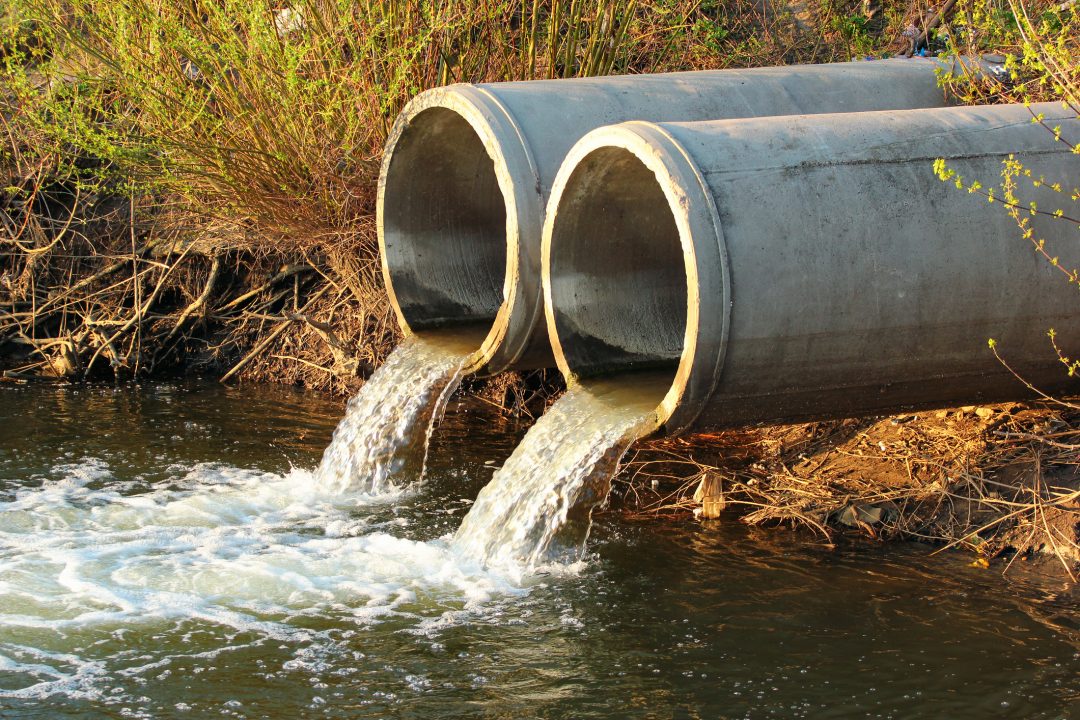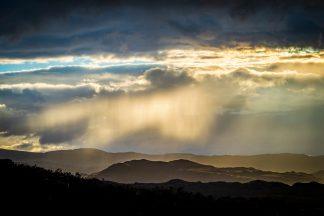Sewage was dumped in Scottish rivers and lochs for more than an estimated 600 hours per day last year.
Official statistics from Scottish Water, published on Wednesday, show 21,660 discharges were logged in 2023 – a 10% increase from 19,676 the previous year.
The duration of the overflows was also published, with sewage spills totalling 221,002 hours across the whole year.
Scottish Water said the increased number of overflows is because of higher rainfall.
The majority of the overflows are reported to the Scottish Environment Protection Agency (Sepa), while others are monitored through various regulations but not published in Sepa’s annual publication.
Scottish Liberal Democrat leader Alex Cole-Hamilton branded the figures “disgusting” and urged the Scottish Government to “stop being spin doctors” for the outdated sewage standards.
Mr Cole-Hamilton said: “It is disgusting to learn sewage is being dumped into our waterways 59 times a day.
“Even that figure is likely to be a significant underestimate because only a small fraction of sewer overflows are monitored. Scotland is way behind England, where nearly every overflow is monitored.
“To make matters worse, while our rivers, lochs and coastlines are destroyed, customers are facing huge price rises from the Government-owned water company and its executives are pocketing bumper bonuses.
“SNP and Green ministers must stop being spin doctors for these outdated sewage standards and get tough with the Government-owned water company.
“To turn the tide on this scandal, Scottish Liberal Democrats have published plans for a Clean Water Act that would see vital updates to our sewage network and a clamp down on discharges.”
Professor Simon Parsons, director of environment, planning and assurance at Scottish Water, said 87% of Scotland’s water bodies are rated good or better.
He added: “We continue to invest in infrastructure – £500 million in addition to the £2 billion spent in the last decade – which helps improve it further to meet national targets.
“Our waste water treatment systems handle more than one billion litres of waste water every day and are a vital part of the water cycle in Scotland.
“The routemap we published in 2021 set out a crystal-clear commitment to invest further, monitor performance at more locations and strive to prevent pollution incidents before these happen. We are on track to deliver on those commitments.”
Last week, figures obtained by the Lib Dems using freedom of information legislation showed 2,099 complaints were made to Sepa about sewage in rivers, loch and seas between 2019 and 2022.
Nathan Critchlow-Watton, head of water and planning at Sepa, said: “Sepa are focused on protecting and improving Scotland’s water, with two decades of targeted regulation driving investment – meaning our water quality is at its highest level ever. More than 87% of watercourses are rated as good or better and we have a record-breaking number of bathing waters rated as ‘excellent’.
“Combined Sewer Overflows (CSOs) are an integral part of Scotland’s sewerage system, designed to discharge at times of high rainfall to prevent sewage backing up and flooding houses. Sepa regulate discharges to the water environment, including discharges from CSOs, and assess Sewer Network Licences on a rolling basis, with particular focus on those which have unsatisfactory compliance, as these can discharge sewage litter and impact on people’s enjoyment of the environment.
“Climate change is leading to an increased frequency of high-intensity rainfall events, affecting the number of overflow events. We’re clear in our regulatory role in ensuring Scottish Water delivers against the Urban Waters Route Map, prioritising investment where it will have the most benefit for the environment and communities.
“Scottish Water have committed to installing monitors on every CSO discharging to a bathing or shellfish water by the end of 2024, with near real-time monitoring published for all these monitored CSOs by the end of 2024. Sepa will ensure this commitment is delivered.”
A Scottish Government spokesperson said: “SEPA assesses 87% of waterbodies in Scotland as having ‘high’ or ‘good’ water quality, up from 82% six years ago. This means our rivers and coastal waters are overall in good ecological condition, but we are not complacent, and continue to work closely with SEPA and Scottish Water to monitor and improve water quality.
“Scottish Water is committing up to £500m to improve water quality, increase monitoring of the highest priority waters and tackle debris and spills. However, it is important to note that overflows from sewers are wastewater which has been highly diluted by rainwater, and which normally consists of less than 1% toilet waste.
“We have also recently undertaken a public consultation on water, wastewater and drainage which considers how we limit the amount of rainwater entering sewers to reduce overflows.”
Follow STV News on WhatsApp
Scan the QR code on your mobile device for all the latest news from around the country


 iStock
iStock

























